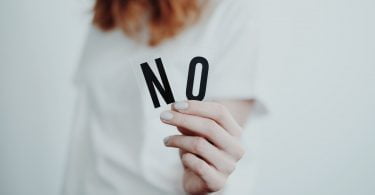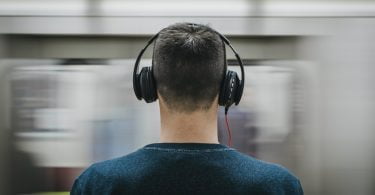They say that in the Roman times, such was the yearning for local gossip and news, the rich upper class of society would actually pay for spies to be on the streets of Rome to gather and then relay the latest news on the streets – from a neighbours most recent bout of infidelity, to the latest conquest of the great Julius Caesar. Fast forward through the history of news through an uncomfortable portal of newsreaders, such as Richard Baker, Trever McDonald and CBBC’s ‘newsround’ legend Lizo Mzimba to ‘those annoying guys on Fox that Russell Brand talks about’, and we can discern that today we still harbour the same Roman craving for news and gossip. Unlike before however, now we can not only receive news before it’s even hit the headlines, but we can be the news story itself. McDonald and Mzimba exit stage right; enter front and centre, Twitter.
Democracy of Twitter
With the emergence of social media sites such as Facebook and more principally Twitter, we have been given a platform to socially connect with people in ways so stress-free that even grandmothers are known to dabble in a game of ‘indirects’ and ‘strategic liking’. The ease in which we can receive relevant headlines and participate in discussions that arise from said headlines is remarkable given that even up to 15-20 years ago we relied heavily on printed news as our main source of information with little or no scope for discussion. The criticism of news reporting before has been in its bias with political motives arising from corruption and bribery, dating as far back as the aforementioned Roman times. This judgement of political backscratching has made people feel queasy about the information being delivered to them from our popular newspapers. We had long sought for news stories to disseminate, or more pertinently go viral, based on quality, not the ability to please the right person.
One of the initial promises of social media was that it might help news stories succeed on their own merits – removing old gatekeepers, whether Roman aristocrats or profit seeking editor’s, and democratizing how information circulates. But that hasn’t quite panned out.
Much like how the media and reporting streams had previously been capitalised by powerful people and institutions, it has been exploited again by these forces. Primarily through previous market stature, the most powerful media outlets have obtained the most Facebook fans and Twitter followers which means that content that serves their interests is much more likely to be offered to your newsfeed in the subtly subjective manner which has long plagued the news reporting field of work. News on social media is still tailored to what will create more interest or fit a political narrative rather than the individual merit and, unfortunately these days, the ghastliness of the actions. This is why phrases such #JeSuisCharlie, #JeSuisAhmed and #BringBackOurGirls have trended alongside #ZaynPleaseMarryMe or #Cut4Bieber. The marriage of the multimedia news reporting industry to the social media news reporting industry has rendered social media’s ability of democratic reporting as useless.
Use of Twitter
This leads us on to why we, as normal individuals, feel the right to involve ourselves in the tragedies that take place around us via the safe confines of Twitter.
After all, before Charlie we were Trayvon Martin. Before Trayvon Martin, we were monkey’s (Dani Alves banana incident). It’s an unavoidable semantic reality: activist hashtags only seem to catch on if we phrase them to be about ourselves. Assuming the identity of the victim has become the de facto response to everything from perceived police brutality (#ICantBreathe) to the kidnapping of Nigerian schoolgirls (#BringBackOurGirls). As well intentioned as it is to implicate ourselves with sharing the victim’s ideals and grief, it is also a nod to our inner narcissism. Inadvertently through hashtags, we end up playing the victim. The line between assuming and subsuming is thin, and even benevolent hashtags tend to smear the two together, blurring out facts that are complicated or otherwise inconvenient. Claiming that ‘we are Charlie’ deliberately ignores and subsequently erases the fact that the staffers at Charlie are rare in that they continued, and still continue, to publish with very real threats on their lives.
Claiming that you are Charlie also implicates you with other possibly offensive or racist publications of the magazine. To many people, that seems to be the inherent problem with ‘tweeting’ or ‘hashtagging’ following a tragedy. People, as expected, tend to follow the most popular narrative being presented to them without any real understanding of the complex and idiosyncratic sub issues pertaining to a tragedy.
Furthermore, it is argued that there is a tendency to ignore other issues in less relatable countries that may be filled with as much tragedy; displaying ignorance and a sad sense of social acceptance that only seems to be mediated exclusively by likes, shares or favourites. One may feel obliged to commentate on a ‘popular’ tragic event, but within their very genuine sentiment may also hope to spark recognition for a partisan stance in a divisive issue, purely for ego. After all, that is the primary function of social media: A massaging parlour for your ego. Without the likes or favourites, Facebook or Twitter would not have wrestled the market away from existing social media sites. If you are active on social media, you are invariably playing to your ego. Having an ego is not necessarily a bad trait however when you attempt to involve yourself with issues that have no significance to yourself, particularly on a site that propagates ego and narcissism, you are, ironically, in danger of presenting yourself as selfish and narcissistic.
Is it all so bad?
The only way to possibly avoid this paradox is to take social media back to basics and form opinions of tragedies based on merit, not the trending page. That is what we have always desired, that is what news should be, a report of an event with no bias. Otherwise it is not news of an event but an opinion of an event; an opinion that is projected on to you to justify.
Nevertheless, despite the perceived narcissism, self-indulgence or even ignorance that may result from a thoughtless tweet or Facebook share, the positive sentiments of trending individual statements gives us a feeling of cohesion or community just when humanity seems to be at breaking point. And for that reason alone you cannot argue against it. The sensation of omnipotence that it gives to a united society alone justifies the narcissism. There’s no ambiguity in the 5 million tweets sent on #JeSuisCharlie between the 7th – 9th of Jan. Taken together, that’s the world saying: we are one.
You just wish that sensation lasted.








